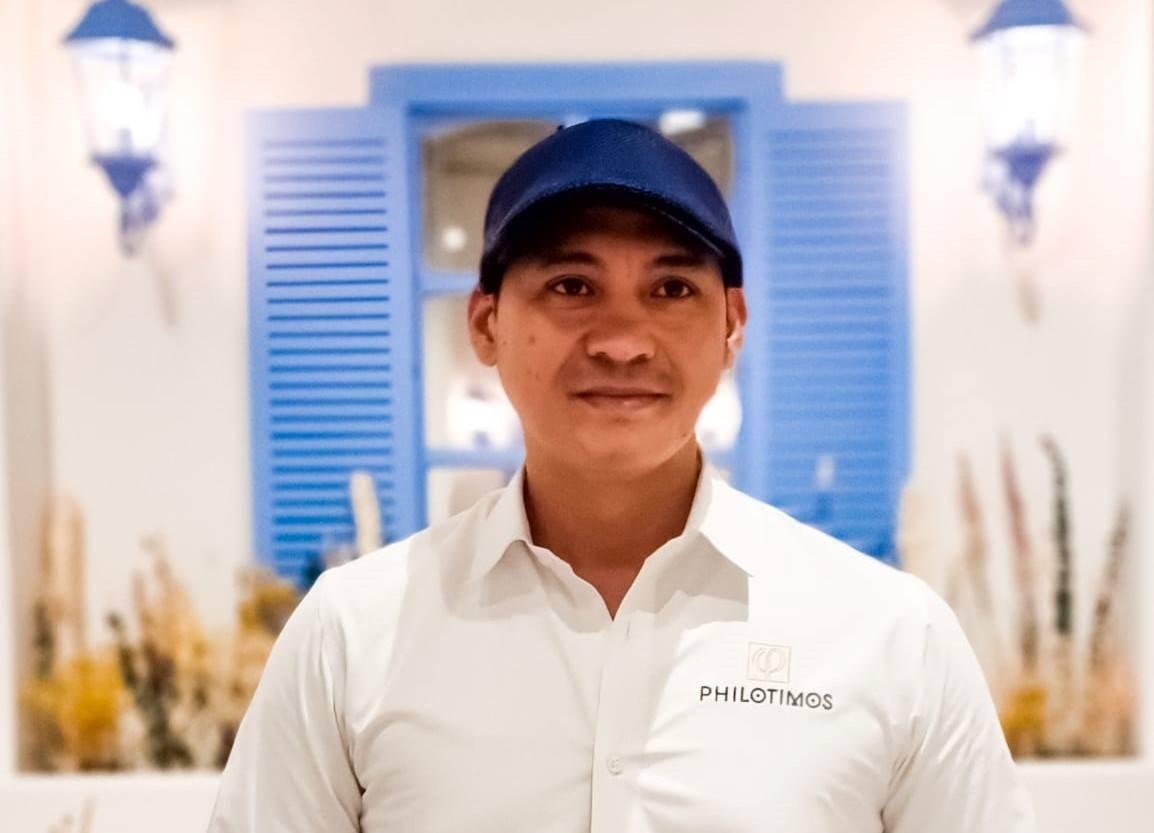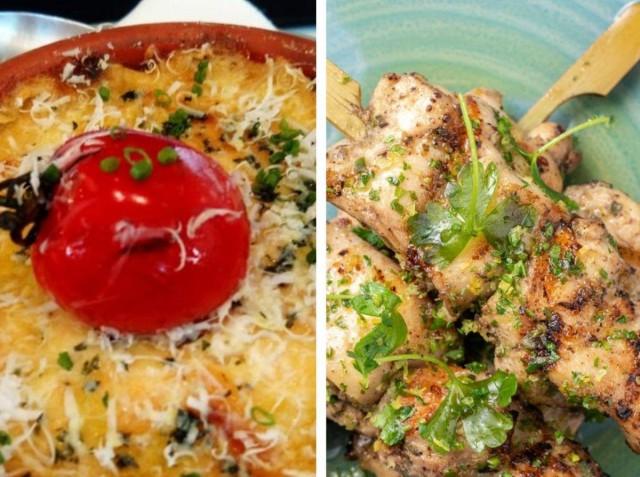Dubai OFW heads team at high-end restaurant offering authentic dishes from Greece

DUBAI, United Arab Emirates – Marvin Amparo took a course in automotive engineering back in college. But life in a restaurant caught his interest, and so these days he works as manager at a top Greek dining destination in an upscale part of Dubai.
Now a seasoned food and beverage (F&B) professional, 47-year-old Amparo got on board Philotimos Mezze & Grill at the Dar Al Wasl Mall in October this year to be part of its opening team.
“Working at Philotimos, you get to meet lots of different nationalities because Greek food is well known all over the world,” said Amparo, who is among the few hundred Filipinos working in mid-level positions in Dubai’s F&B scene.
“As restaurant manager, I have to ensure that operations are running smoothly. I oversee finances, deliver excellent Greek experience, deliver superior food and beverage service, and maximize guests’ satisfaction,” he added.
There are about 60 Greek restaurants across Dubai. Philotimos, Greek for “love of honor,” is unique because all dishes on the spread are sourced from Greece, giving customers an authentic taste of Greek cuisine in Dubai.
He said the Greek and Filipinos share a common trait. “The hospitality of the Pinoys and the Greek are almost the same. We like to share our blessings and spread the love,” Amparo said.
Turning Greek
He said it took him “around a month of continuous practice to speak and deliver the right pronunciation of Greek dishes,” and has actually grown to love the food, himself, among them, the moussaka, described as the Greek version of lasagna albeit with its layered gratin of eggplant, zucchini, sweet potatoes, tomatoes, and cheesy béchamel sauce.
There is also the chicken souvlaki, somewhat a “cousin” of the Thai satay; and the fried Saganaki cheese, his “personal favorite” served oozing with melted Kefalograviera cheese inside, with honey and sesame seeds poured all over.

“Filipino foods taste so good and yummy. But most are unhealthy like adobo, lechon, crispy pata. Greek foods are usually made from fresh ingredients like vegetables, nuts, yogurt, cheese, fresh fruits, honey and herbs,” Amparo said.
He added that he can also prepare and cook Greek dishes.
Visit visa
Amparo arrived in Dubai 12 years ago on a visit visa. Four years later in 2014, his F&B career gathered steam after being selected to be part of the pre-opening team of Eat Greek, another Greek restaurant in Dubai’s touristy Jumeirah Beach Road (JBR) area.
In the F&B and hospitality world, being part of a pre-opening team requires a lot of hard work preparing for the big day. Those who had gone through this make it a point to include it in their resumés because it is a big plus factor in terms of work experience.
Following his Eat Greek - JBR stint, Amparo was also hired to be part of the actual opening team of the same restaurant’s branch in the Dubai Mall two years later in 2016.
Working student
Looking back, Amparo said he just might have pursued the wrong course back in college.
“Medyo malayo nga sa kurso,” Amparo, who hails from Quezon Province, said, laughing.
(My profession is not quite allied with my course [in college].)
To help defray tuition expenses at the Technological University of the Philippines (TUP), Amparo worked as a service crew at a big burgers-and-fries fastfood chain and then on to a pub in Ermita, Manila.
“Nagustuhan ko 'yung samahan, tapos 'yung trabaho at pakikipag-usap sa mga guests. Doon na nag-umpisa ang food and beverage life ko,” said Amparo, who already knew how to cook since he was 11 years old as his mother had a small restaurant in their hometown.
(I liked the camaraderie and the work; I also liked mingling with the guests. That’s how my life in F&B started.)
He went on to work as a waiter at a five-star hotel in Makati and a high-end Italian restaurant also in Makati; then as bartender at a top nightclub in Bonifacio Global City in Taguig.
With this background, Amparo tried his luck in Kuwait where he got a job as manager of a unique dining venue, and finally, Dubai in October 2010.
Working during the holidays
Like most overseas Filipino workers (OFWs) who have spent years abroad, Amparo said he has become used to working on the Christmas and New Year’s Eve holidays, as the nature of his job necessitates so.
“I’m already used to it. Every Christmas and New Year, always on duty. This was especially when I was working in the Dubai Mall. Usually, I go home at between 3 a.m. and 4 a.m.,” Amparo said, referring to the Burj Khalifa New Year’s Eve fireworks display and laser show, which draws a mammoth crowd as early as sunset. —KG, GMA Integrated News




